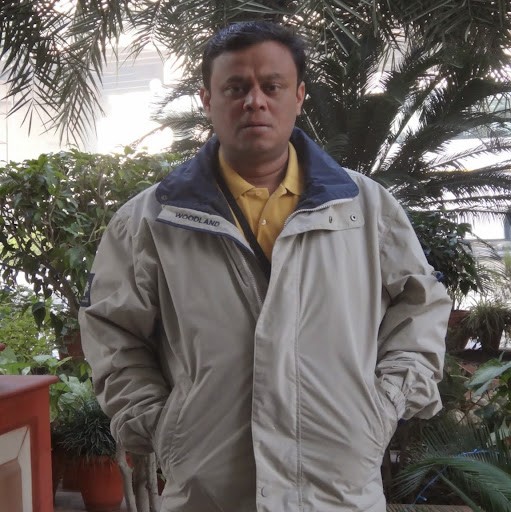Secondary evidence
 Veeresh Naik
(Querist) 29 June 2013
This query is : Resolved
Veeresh Naik
(Querist) 29 June 2013
This query is : Resolved
In an injunction I want to prove spot panchanama. The original panchanama which was with Tahsildar is lost as he filed pursis to that effect on record. Fortunately my client had obtained true copy from tahsildar office earlier, I produced the same on record. I examined officer who put endorsement on the panchanama as 'true copy'. Court has exhibited the same only because witness identified his signature as true copy who has deposed that he had signed only after seeing the original and the same is not available in his office now. I want to prove the contents of panchanama. I have prayed for witness sum. for police who had drawn the panchanam, is it enough or I will have to move application for permission to lead secondary evidence? what procedure should I follow? pl help.
 Raj Kumar Makkad
(Expert) 29 June 2013
Raj Kumar Makkad
(Expert) 29 June 2013
As the documents has already been got exhibited, its contents shall be duly read over in evidence. There is no need to move a specific application for leading secondary evidence in the given case now.
 Veeresh Naik
(Querist) 29 June 2013
Veeresh Naik
(Querist) 29 June 2013
Thanks sir, do you think that I can prove the contents of the same through the police officer, drawing panchanama and there will be no problem for not seeking panchanama when the doc. is exhibited only for signature of witn.?
 Raj Kumar Makkad
(Expert) 30 June 2013
Raj Kumar Makkad
(Expert) 30 June 2013
It was your duty to move an application prior to the statement of that police officer on whose affirmation the document was exhibited but when this document has been duly exhibited, it shall definitely become the part of the evidence and its contents shall be duly read accordingly.
 DEFENSE ADVOCATE.-firmaction@g
(Expert) 30 June 2013
DEFENSE ADVOCATE.-firmaction@g
(Expert) 30 June 2013
Production of document does not mean its contents are also admitted . You have to prove the contents than only it can be read in evidence.
In many routine cases just because the opposite party do not take objection so this fine difference is not observed.
Please read what APEX COURT has to say in this matter.
Mere admission of a document in evidence does not amount to its proof. Therefore, the documentary evidence is required to be proved in accordance with law. The court has an obligation to decide the question of admissibility of a document in secondary evidence before making endorsement thereon.
(Vide:
The Roman Catholilc Mission & Anr. v. The State of Madras & Anr., AIR 1966 SC 1457;
State of Rajasthan & Ors. v. Khemraj & Ors., AIR 2000 SC 1759; Life Insurance
Corporation of India & Anr. v. Ram Pal Singh Bisen, (2010) 4 SCC 491; and M. Chandra v.
M. Thangamuthu & Anr., (2010) 9 SCC 712).
 Rajendra K Goyal
(Expert) 30 June 2013
Rajendra K Goyal
(Expert) 30 June 2013
Agree with the views of Advocate Defense, nothing more to add.
 Raj Kumar Makkad
(Expert) 30 June 2013
Raj Kumar Makkad
(Expert) 30 June 2013
The given judgment are based on some other point and is not relevant in the given facts.
 prabhakar singh
(Expert) 01 July 2013
prabhakar singh
(Expert) 01 July 2013
Exhibition is procedural activity to be done after proof of document.
But if a document has been inadvertently exhibited without formal proof,legally it shall not be received in evidence.
Likewise if a document has been inadvertently not exhibited even after it's proof,it shall be received in evidence despite non exhibition.
A court is required to apply it's mind in accordance with law and not merely on it's
wrong symbolization called exhibition.
 DEFENSE ADVOCATE.-firmaction@g
(Expert) 01 July 2013
DEFENSE ADVOCATE.-firmaction@g
(Expert) 01 July 2013
Production of documents and admission of its contents are two separate things which was not even appreciated by HIGH COURT and hence the above citation of APEX COURT.
Now Mr Makkad has given contrary opinion so I have requested him to qualify his opinion.
What you are telling is production but it does not mean its contents also. The apex court had gone to the extent that even if the opposite side did not object it was the duty of the court to look into this vital aspect.
 Raj Kumar Makkad
(Expert) 01 July 2013
Raj Kumar Makkad
(Expert) 01 July 2013
Order 13 Rule 4 sub-rule (1) of the Civil Procedure Code provides as under :-
4.( 1 ) ' Subject to the provisions of the next following sub-rule, there shall be endorsed on every document which has been admitted in evidence in the suit the following particulars, namely :- (a) the number and title of the suit, (h) the name of the person produced the documents, (c) the date on which it was produced, and, (d) a statement of its having been so admitted; and the endorsement shall be signed or initialled by the Judge. (2) xxx xxx xxx (Punjab & Haryana amendment) :- "Provided that where the Court is satisfied that the 'document, not endorsed in the manner laid down in the above rule, was in fact admitted in evidence, it shall treat the document as having been properly admitted in evidence unless non-compliance with this rule has resulted in miscarriage of justice." - Haryana Gaz., 11-6- 1974, Pt.III (L.S.) p.687."
 Raj Kumar Makkad
(Expert) 01 July 2013
Raj Kumar Makkad
(Expert) 01 July 2013
My reply was based upon the above mentioned law otherwise the interpretation of Adv. Defense is not against general law applicable all over India.
